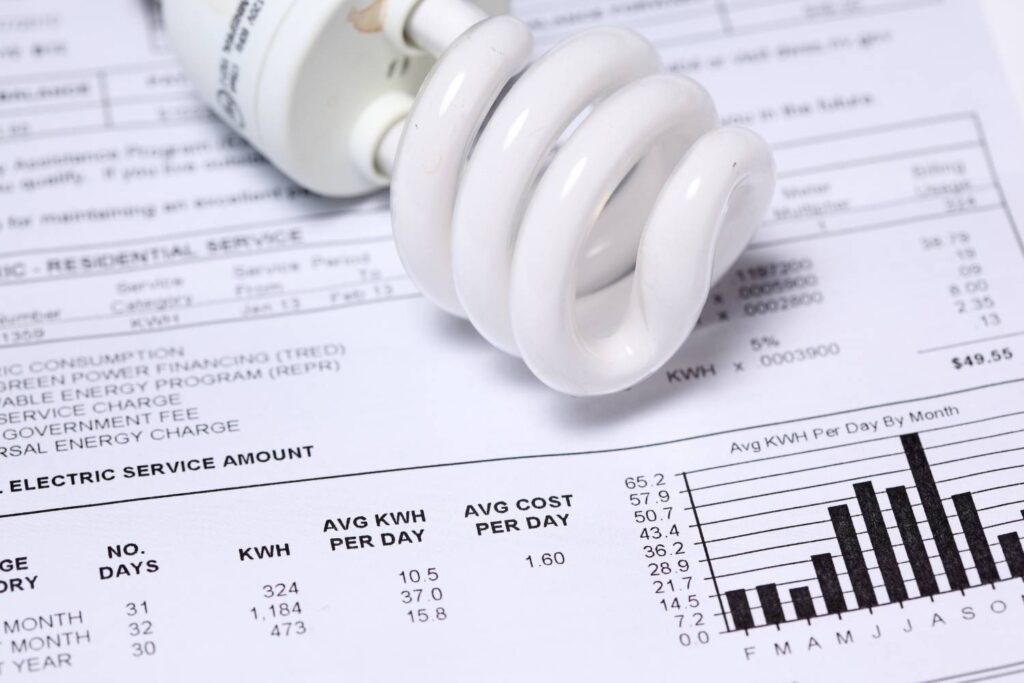20 Simple Frugal Living Tips
Are you looking to make the most of your money? Frugal living isn’t about deprivation. It’s an opportunity to be smarter with what you have. Whether you’re looking for ways to stretch a single income or want greater bang for your buck, try these 20 simple, frugal living tips!
This post may contain affiliate links. That means that if you click on a link and purchase something I recommend, I will receive a small commission at no extra cost to you. As an Amazon Associate, I earn from qualifying purchases. This helps keep my website up and running and is very appreciated. Thank you for your support! You can read my full disclosure policy here.
What is frugal living?
Frugal living is the art of mastering your finances in a way that allows you to maximise financial security and still enjoy life. It’s about cutting expenses where it makes sense, living on less than you earn, and always ensuring you use your money wisely. Frugal living emphasises crafty ways to save money without sacrificing comfort and quality.
Frugal living isn’t necessarily about depriving yourself, either. It is about being intentional with your money and ensuring that your finances are working as hard as they can to provide you with plenty of room to live comfortably. This is especially great if you’re easily tempted by impulse purchases. Choosing to live frugally means putting some effort into researching the best spur-of-the-moment deals and tracking your spending habits over time to ensure that you are budgeting efficiently.
Frugal living has many benefits, from gaining greater clarity about where your money is going each month, reducing stress triggered by debt, or creating more room in your financial plans to realise future dreams!
20 Simple frugal living tips:
Being frugal doesn’t mean giving up the things you enjoy! With a few savvy tricks and techniques, even those with just one income can get ahead. From utilising coupons to taking advantage of loyalty programs, discover 20 simple ways to maximise your budget and stretch every pound further. Live smarter, not harder!
1. Create a budget

Creating a realistic budget is one of the best ways to control your expenses. This is especially true if you have only one household income. Budgeting puts you back in control of your finances. It shows you how to manage your money and make better financial choices.
If your financial situation has changed recently, making a budget will help you stay out of debt and even help you out of it if needed!
Creating a budget is pretty simple. However, if your finances are already in dire straits, it could feel hard emotionally. If this is the case, you must face the facts and take steps to put things back on track.
If you have never created a budget before check out my simple step by step guide.
2. Track your spending
No budget will be beneficial if you haven’t tracked your expenses. After all, how can you understand your spending habits if you don’t know what they are? Even the smallest of expenses can add up considerably, blowing your budget at the same time!
There are several options for tracking your spending; however, one of the simplest is to write down everything you spend on paper. By tracking all your expenses, you are accounting for every penny spent. Doing this lets you identify areas in your spending habits that you may want or need to change.
3. Stop impulse buying
Impulse buying is a temptress that can ruin your budget. Enticing us with the promise of instant gratification, it’s all too easy to give in and succumb to our worst fiscal behaviours. Although a little indulgence every once in a while is nice, it’s important to resist these urges, which can leave you overwhelmed with buyer’s remorse.
Next time you feel the urge to impulse buy, delay the purchase for a few days and then reconsider if you still want or need it. Nine out of ten times, you probably won’t.
4. Change supermarkets

Does your usual supermarket sell everything you could ever need and more? If so, why not change to a more value-based supermarket like Aldi or Lidl? This way, you won’t be persuaded to buy all sorts of random things you don’t need.
5. Down branding
Most items we buy are also available as supermarket-owned brands for much cheaper.
Supermarkets also usually have value budget lines, giving you the choice to reduce your food costs further. Value items may not be as good as branded goods, quality-wise; however, swapping out a few items can still save you a few quid. This may take a bit of trial and error, but you will soon learn the items you are happy to swap and those you aren’t.
6. Buy in bulk
Well, only when it makes sense! Things like cleaning products, pantry essentials and dry goods are good to buy in bulk if the cost is worth it. However, buying in bulk may not always be the cheapest option. I’ve seen so many items sold cheaper as singles than the three-for-two offers I’ve seen advertised!
7. Stick to a shopping list
Making a shopping list is a great way to prevent impulse buying at the supermarket. I usually stick a list on the fridge and add items as needed. This will not only stop you from buying unnecessary items but also save you time. Having and sticking to a list will greatly reduce the amount of time spent shopping. I’m usually in and out in no time!
8. Buy frozen or tinned instead of fresh
Frozen and tinned food is much cheaper than fresh but can still have a similar nutritional value. Buying frozen will also reduce waste as you only use what you need.
9. Be comfortable with the difference between ‘use by’ and ‘best before’
If a product has a ‘use by’ date shown on it, then you must consume it by this date, as after this, it may not be safe to eat or freeze, even if it smells and looks okay. If a product shows a ‘best before’ date, the food will be at its best if eaten before this date but not unsafe to eat afterwards.
10. Use supermarket loyalty cards
Many supermarkets now have loyalty cards. These cards usually work by building up points in exchange for money off coupons or discounted items. The savings may be small, but they do add up.
11. Try out meal planning and batch cooking
Meal planning and batch cooking are ways to purposely plan out all your meals and then cook or prep them beforehand. This way you can save money by shopping just for the items you need. This method not only saves you money it also saves you time!
For tips on creating healthy meal plans, check out the Eating Well website.
12. Utilities

Energy bills can be expensive and take up much of our budget. However, are you on the best and cheapest tariff for your needs? Many of us sign up for a particular energy provider and stay with them for years.
However, according to The Money Advice Service, switching energy suppliers can save the average household £300 a year. It’s easy to switch; choose a price comparison website and go from there. If you aren’t sure which site to use, the Ofgem website can guide you in the right direction. This government website has approved several price comparison websites that comply with a code of practice.
13. TV and phone subscriptions
How many of us have expensive phone and TV subscriptions that we don’t use or need? One of my biggest outgoings used to be my mobile phone; however, when the contract ended, I changed to a sim-only contract instead of upgrading to a brand-new phone. After all, my phone was still in great condition and worked perfectly well.
You can compare the costs of SIM-only deals using this SIM-only comparison tool. Check that you’re out of contract with your existing provider before switching to a SIM-only deal, as if you leave early, there may be charges to pay.
TV subscriptions can also be expensive. Could you scale down to a basic package and see how much you miss? If you feel like you need more options, why not subscribe to something like Amazon Prime? This way, you’ll get access to 15,000 movies and TV shows, over 2 million songs on Prime Music, and unlimited free delivery on Amazon.com.
14. Housing costs
If circumstances have changed significantly, you may need to consider downsizing or moving to a cheaper area. This may seem like a daunting decision, but it may be the only way to regain control of your finances and get things back on track.
If you have a mortgage, it’s likely to be your most significant expense, so make sure you aren’t paying more than you need to. This free mortgage comparison service allows you to compare mortgage deals from the whole market and find out how much they could save you.
15. Charity shops

These days, you can buy almost anything in a charity shop. Clothes, furniture and even electronics can be found at significantly discounted prices. You may even find some great luxury items at knockdown prices if you are lucky!
16. Buy/sell websites
Second-hand doesn’t always mean the second rate. If you want to buy something particular, why not check the internet? There are so many resale websites out there offering discounted items and good quality second-hand goods. You are sure to find what you need at a much reduced cost. One of my favourite websites for buying second-hand goods is eBay.
17. Sell unwanted goods
On the flip side, if you need to get hold of money quickly, then why not sell your unwanted goods? A good de-clutter is not only great for the mind, but it’s also a great way to earn some extra cash.
18. DIY Gifts
Instead of buying expensive gifts, why not consider making your own? Homemade gifts are usually enjoyed more and are much more appreciated.
Ideas include:
- Homemade hampers
- Mason jar gifts.
- Homemade soap, candles and other spa items.
- Knitted items
- Personalised gifts
- Jewellery
19. Transportation options
Transport costs can be huge, especially if you need to rely on a car or a train. Is it possible to walk to work or even take a bike? If so, transportation costs will be greatly reduced.
If you need to use a car, use a price comparison website each year to get the best value care insurance. If it’s time for an MOT, shop around for the best deals; many garages often have half-price offers.
If you need to rely on public transport, consider the cost of buying a weekly or monthly pass. However, this may not be the cheapest option, depending on how often you travel.
20. Vacations/days out
Instead of booking expensive annual holidays, why not explore closer to home?
The same goes for days out. In most areas, there will be countless places to visit that are free or cost very little. Why not join English Heritage or the National Trust? For around £6 a month, you can have free unlimited access to hundreds of stately homes, castles and gardens, and other cultural and wildlife locations in and around the UK.
Final thoughts:
Implementing even a few of these tips can save you hundreds of pounds each year. Living frugally does not mean going without. It simply means finding creative ways to get the most out of what you have. What are your favourite frugal living tips?
If you feel like your finances are slipping out of control, don’t be afraid to ask for help. Many organisations in the UK can help and give great advice, such as Citizens Advice, Money Saving Expert, and Step Change.
Remember to check out our related resources for more tips and guidance on this important topic. Take control of your life and embrace a brighter future!
Thanks so much for stopping by; I appreciate everyone who takes the time to read and make it to the end! I have lots of exciting new content in the next few weeks, so make sure you pop back to catch up!









